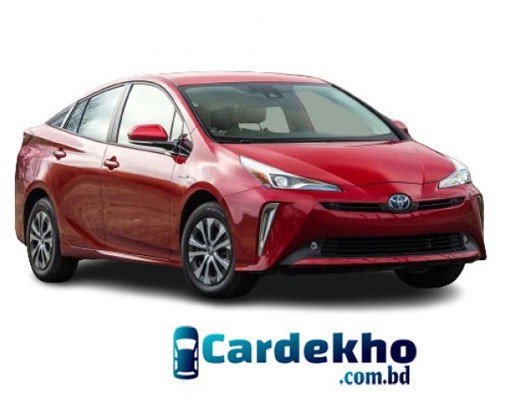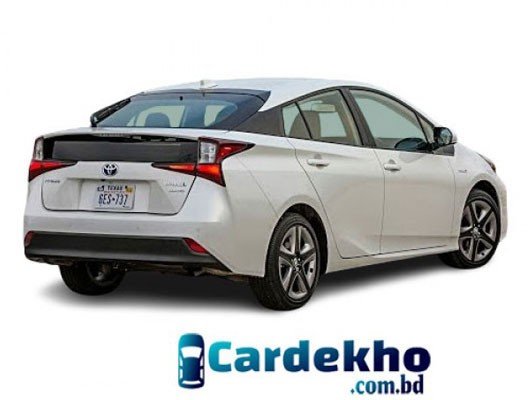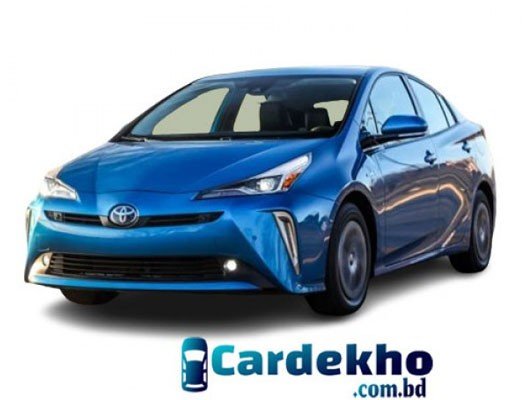Toyota Prius Full Review With Pros and Cons
The Toyota Prius has long been synonymous with hybrid technology and eco-friendly driving. Since its debut in 1997, the Prius has evolved significantly, integrating advanced technology, innovative design, and enhanced performance. This article delves into the various aspects of the Toyota Prius, providing an in-depth review of its exterior and interior design, engine and performance, technology, cargo space, safety and driver-assistance features, fuel efficiency, available models, and overall pros and cons.
Exterior Design
The exterior design of the Toyota Prius is both iconic and functional. Over the years, the Prius has undergone several redesigns, each enhancing its aerodynamic profile while maintaining its distinct look. The current generation Prius features a sleek, futuristic design characterized by sharp lines, a low stance, and a smooth, flowing shape that reduces air resistance.
Key Exterior Features:
- > Aerodynamic Shape: The Prius’s teardrop shape and smooth contours help minimize drag, contributing to better fuel efficiency.
- > LED Headlights and Taillights: Modern LED lighting not only enhances visibility but also adds a contemporary touch to the car’s appearance.
- > Wheel Options: The Prius comes with a variety of wheel designs, ranging from 15-inch alloy wheels to sportier 17-inch options, catering to different aesthetic preferences.
- > Color Choices: The Prius is available in a range of colors, from classic whites and blacks to vibrant hues like Supersonic Red and Electric Storm Blue.
The Prius’s design isn’t just about looks; every element is engineered to improve fuel efficiency and performance. The underbody is smoothed out, and strategically placed fins and spoilers reduce turbulence, making the Prius one of the most aerodynamically efficient cars in its class.
Interior Design
Inside, the Toyota Prius offers a blend of modern aesthetics, comfort, and advanced technology. The interior is designed to maximize space and usability, providing a comfortable environment for both driver and passengers.
Interior Features:
- > Dashboard Layout: The Prius features a centrally positioned instrument panel that provides essential information at a glance, reducing the need for the driver to look away from the road.
- > Seating: The seats are designed for comfort and support, with available options for heated front seats and a power-adjustable driver’s seat. The materials range from high-quality cloth to eco-friendly SofTex synthetic leather.
- > Cargo Space: The Prius offers ample cargo space, with the rear seats capable of folding down to accommodate larger items. The hatchback design provides easy access to the cargo area.
- > Infotainment System: The Prius is equipped with a touchscreen infotainment system that includes features like navigation, Apple CarPlay, Android Auto, and a premium JBL audio system in higher trims.
The cabin is thoughtfully designed with a focus on sustainability, using eco-friendly materials and processes. The spacious interior, combined with the advanced technology, makes the Prius a pleasant place to spend time, whether on a short commute or a long road trip.
Engine and Performance
The heart of the Toyota Prius is its hybrid powertrain, a combination of a gasoline engine and an electric motor that work together to optimize performance and efficiency.
Engine and Performance Details:
- > Hybrid Synergy Drive: The Prius features Toyota’s Hybrid Synergy Drive system, which seamlessly integrates the gasoline engine and electric motor. The system can operate in electric-only mode, gasoline-only mode, or a combination of both.
- > Engine Specs: The current generation Prius is powered by a 1.8-liter four-cylinder engine paired with an electric motor, producing a combined output of around 121 horsepower.
- > Transmission: The Prius uses an electronically controlled continuously variable transmission (eCVT), which ensures smooth and efficient power delivery.
- > Driving Modes: The Prius offers multiple driving modes, including EV (electric vehicle) mode, ECO mode for maximum efficiency, and POWER mode for enhanced acceleration and responsiveness.
Despite not being a high-performance vehicle, the Prius offers adequate power for everyday driving situations. Its main strength lies in its fuel efficiency and smooth, quiet operation, making it ideal for urban commuting and long-distance travel alike.
Technology
The Toyota Prius is packed with cutting-edge technology that enhances both convenience and safety. From advanced driver-assistance systems to innovative infotainment features, the Prius ensures a modern driving experience.
Technological Highlights:
- > Toyota Safety Sense: This suite of safety features includes Pre-Collision System with Pedestrian Detection, Lane Departure Alert with Steering Assist, Dynamic Radar Cruise Control, and Automatic High Beams.
- > Head-Up Display: Available on higher trims, the head-up display projects important information onto the windshield, allowing the driver to stay informed without taking their eyes off the road.
- > Entune Infotainment System: The Prius comes with Toyota’s Entune infotainment system, featuring a touchscreen interface, navigation, voice recognition, and smartphone integration.
- > Wireless Charging: Select models offer a wireless charging pad for compatible smartphones, adding to the convenience factor.
The Prius also includes features like a smart key system with push-button start, a color multi-information display, and a range of connectivity options to keep drivers and passengers connected on the go.
Cargo Space
One of the practical advantages of the Toyota Prius is its ample cargo space, which makes it a versatile vehicle for various needs.
Cargo Space Details:
- > Hatchback Design: The Prius’s hatchback design allows for easy loading and unloading of cargo. The rear hatch opens wide, providing access to a spacious cargo area.
- > Rear Seat Flexibility: The 60/40 split-folding rear seats offer flexibility, allowing owners to expand the cargo area as needed. With the rear seats folded down, the Prius offers up to 27.4 cubic feet of cargo space.
- > Storage Solutions: The Prius also includes various storage compartments throughout the cabin, including a center console bin, door pockets, and a glove box.
Whether you’re carrying groceries, luggage, or sports equipment, the Prius provides the space and versatility needed for a wide range of activities.
Safety and Driver-Assistance Features
Safety is a paramount concern for Toyota, and the Prius is no exception. The vehicle is equipped with a comprehensive array of safety and driver-assistance features designed to protect occupants and enhance driver confidence.
Safety Features:
- > Airbags: The Prius comes standard with multiple airbags, including front, side, curtain, and knee airbags.
- > Toyota Safety Sense: As mentioned earlier, this suite includes advanced safety features like Pre-Collision System, Lane Departure Alert, and Dynamic Radar Cruise Control.
- > Blind Spot Monitor: Available on higher trims, the Blind Spot Monitor with Rear Cross-Traffic Alert helps drivers detect vehicles in their blind spots, reducing the risk of collisions during lane changes and reversing.
- > Parking Assistance: The Prius offers parking assistance features like Intelligent Clearance Sonar and a rearview camera, making parking in tight spaces easier and safer.
In addition to these features, the Prius’s sturdy construction and high-quality materials contribute to its excellent safety ratings in crash tests, providing peace of mind for drivers and passengers alike.
Fuel Efficiency
The Toyota Prius is renowned for its exceptional fuel efficiency, which is one of its primary selling points. The hybrid powertrain, combined with the car’s aerodynamic design, delivers impressive mileage figures.
Fuel Efficiency Details:
- > EPA Ratings: The Prius achieves an EPA-estimated 54 mpg in the city and 50 mpg on the highway, making it one of the most fuel-efficient vehicles on the market.
- > Regenerative Braking: The Prius uses regenerative braking to capture energy that would otherwise be lost during braking and stores it in the battery for later use, enhancing overall efficiency.
- > Eco Mode: The ECO mode adjusts throttle response and climate control settings to maximize fuel economy, helping drivers achieve the best possible mileage.
The Prius’s outstanding fuel efficiency not only saves money on fuel but also reduces the vehicle’s environmental impact, making it a top choice for eco-conscious drivers.
All Available Models
The Toyota Prius is available in several models, each offering a different set of features and capabilities to suit various preferences and budgets.
Model Lineup:
- >Prius L Eco: The base model, offering essential features and the best fuel efficiency.
- >Prius LE: Adds more comfort and convenience features, including blind spot monitoring and rear cross-traffic alert.
- >Prius XLE: Includes additional luxury features like SofTex-trimmed seats, wireless charging, and a power-adjustable driver’s seat.
- >Prius Limited: The top-of-the-line model, featuring premium amenities like a JBL audio system, adaptive front lighting, and a larger infotainment screen.
- >Prius Prime: A plug-in hybrid variant that offers an extended electric-only range, making it an ideal choice for those who want the flexibility of both electric and hybrid driving.
Each model offers a unique combination of features, allowing buyers to choose the Prius that best fits their needs and lifestyle.
Overall Pros and Cons
Pros:
- >Fuel Efficiency: The Prius is unmatched in its class for fuel efficiency, offering substantial savings on fuel costs.
- >Advanced Technology: The Prius is packed with modern technology, from its infotainment system to advanced safety features.
- >Eco-Friendly: With low emissions and high fuel economy, the Prius is an environmentally friendly choice.
- >Reliability: Toyota’s reputation for reliability extends to the Prius, making it a dependable choice for long-term ownership.
- >Versatility: The spacious interior and flexible cargo space make the Prius a practical vehicle for a variety of uses.
Cons:
- > Performance: The Prius is not designed for high performance, and its acceleration may feel sluggish compared to non-hybrid vehicles.
- >Price: While the Prius offers many benefits, its initial cost can be higher than some traditional compact cars.
- >Styling: The unique design of the Prius may not appeal to all buyers, with some preferring more conventional aesthetics.
Conclusion
The Toyota Prius continues to be a pioneer in the hybrid vehicle market, combining advanced technology, outstanding fuel efficiency, and practical design. Its evolution over the years has kept it relevant and competitive, offering a well-rounded package for eco-conscious drivers. Whether you prioritize fuel savings, environmental impact, or modern features, the Prius delivers on multiple fronts. While it may not be the choice for those seeking high performance or conventional styling, its benefits far outweigh its drawbacks, making it a smart and sustainable choice for many drivers.







